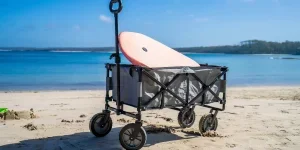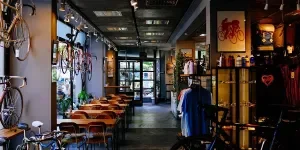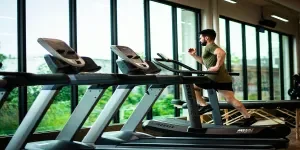Every journey needs a way to move things from one point to another. And depending on camping style, consumers may very well need folding wagons! These accessories are lifesavers for various reasons! They make transporting anything a breeze and won’t waste unnecessary space due to their folding designs—what’s not to love?
Still worried about who would need folding wagons on their camping trips? This article will dive into several reasons why campers may need folding wagons and how businesses can stock up to meet demand in 2024.
Table of Contents
What’s the market for folding wagons like in 2024?
What type of consumers need folding wagons?
4 tips to help businesses choose folding wagons to sell in 2024
Wrapping up
What’s the market for folding wagons like in 2024?
Experts say the global folding wagon market registered an impressive surge in popularity and demand. They attribute the market’s extraordinary growth to changing consumer preferences, evolving lifestyle patterns, and folding wagons’ attractive versatility. More importantly, the Baby Boomers and Gen X generations significantly contribute to this market as they prioritize convenience during outdoor leisure activities.
Many other factors contributed to the folding wagon market’s incredible growth. For starters, the product’s ability to transport various things while being portable and compact garners widespread attention. Additionally, consumers are placing more emphasis on eco-friendly transportation, and folding wagons fit the bill perfectly. The North American folding wagon market is bursting with potential due to urbanization and the demand for convenient outdoor activities. The U.S. also contributes significantly to this regional market.
What type of consumers need folding wagons?
Whether or not consumers need folding wagons depends on their specific camping styles and needs. Single or minimalist campers may not see folding wagons as necessary accessories for their outdoor experience, but many other camping styles demand them for convenience. Here’s a look at the different types of campers that benefit from folding wagons.
1. Large groups
If consumers are camping with large groups, they’ll likely have a lot of gear to transport from their cars to the campsite. Folding wagons can save them multiple trips back and forth, making the offloading and setup process much easier.
2. Campers with young children
Folding wagons can be a lifesaver if campers have young children with them. Campers can use folding wagons to transport children and their belongings. And if they go on longer walks or hikes around the campsite, folding wagons can help transport those tired little legs.
3. Gear-heavy campers
If consumers plan on doing activities like fishing, kayaking, or stargazing, they will need folding wagons. These activities require extra gear that may be painful to move to the sweet spot. But wagons offer a convenient way to haul them all without hassle.
4. Uneven terrain campers
Beaches and rocky terrain are notorious for being difficult to walk on. Yet, some campers see such terrain as their perfect campsite. And since it’s difficult to walk, let alone move gear around, such campers will need folding wagons. They’ll make hauling gear much easier and more comfortable.
4 tips to help businesses choose folding wagons to sell in 2024
1. Choose the appropriate type
When it comes to camping, several folding wagon types stand out due to their features. Choosing between these types solely depends on consumers’ camping preferences, so businesses must keep the following in mind when adding them to inventories:
I. All-terrain wagons
Manufacturers build these wagons for conquering rough terrain, like gravel paths, dirt roads, and even beaches. They typically have large tires that provide good traction and shock absorption, providing a seamless transportation experience. Some models even come with cup holders, brakes, and canopies for convenience.
II. Heavy-duty wagons
These wagons have designs that can handle heavy loads. For this reason, campers prefer them for transporting coolers, camping chairs, firewood, and other heavy gear. Manufacturers equip them with sturdy steel frames and reinforced fabric beds, allowing them to withstand plenty of wear and tear.
III. Beach wagons
While primarily designed for beaches, these wagons can also be useful for camping! Their wide, sand-resistant wheels and mesh panels (for ventilation) make beach wagons perfect for transporting casual goods. Campers can use them to carry towels, beach umbrellas, snacks, and drinks to their campsites.
IV. Camping-specific wagons
Some manufacturers design folding wagons specifically for camping. Usually, they pack them with features like removable coolers, storage compartments, and bug mesh enclosures. Camping-specific wagons are great options for consumers searching for the perfect all-in-one solution for their camping needs.
2. Always go for durability
Imagine consumers are at a campsite, ready to carry their gear from their car to the camping spot. If the wagon they got from retailers isn’t durable, it might break or tear easily when hauling heavy items like tents, firewood, or coolers. A durable folding wagon must feature sturdy materials to make it strong enough to withstand rough terrain, bumps, and heavy loads without falling apart.
Metal is one of the best materials for durable folding wagons. Whether consumers want steel or aluminum, both are tough and can handle heavy loads without bending or breaking. Plastic is another common material. Plastic folding wagons are lightweight and often more affordable than metal variants. However, they may not offer the same durability and are more prone to cracking or breaking under pressure.
But there’s more! Some folding wagons feature material combos. They can come with metal frames and fabric or plastic components. These hybrid wagons offer the sweet spot between durability, weight, and cost. Speaking of fabric, most wagons use reinforced ones to provide maximum durability. Reinforced fabrics come with extra layers or special coatings, making them resistant to tears and abrasions.
3. Consider the wagon’s size and capacity
Don’t make the mistake of offering smaller-sized wagons to consumers with a lot of gear—the flood of angry reviews won’t be worth it. Instead, sellers must consider what size and capacity their target audience may need before stocking up. First, think about the size. Consumers will want wagons big enough to carry all their camping gear.
If it’s too small, they’ll have to make multiple trips back and forth, which can be tiring and time-consuming. Next, consider how much weight the wagon can handle. Like size, consumers will want wagons that support all their gear without exceeding the weight limit. If the offered wagon can’t hold enough weight, consumers may see their stuff spilling out or the product breaking! Here’s a general guideline showing different wagon size ranges, capacities, and ideal uses.
| Size (L x W x H) | Capacity (cubic feet) | Weight capacity (kilograms) | Ideal uses |
| Small (24 x 18 x 20 inches) | 2.5 to 3.5 | 68 to 90.7 kg | Small camping trips |
| Medium (30 x 20 x 24 inches) | 4 to 5.5 | 90.7 to 136 kg | Hauling gear for outdoor activities and large camping trips (1-2 people) |
| Large (34 x 22 x 30 inches) | 6 to 8 | 136 to 181 kg | Family camping trips |
| Extra large (36 x 24 x 36 inches) | 8 to 10 | 181 kg and above | Large-group camping trips |
4. The wheels are also significant
Wheels are possibly the most important part of folding wagons. They determine how well wagons will perform on different terrains, impacting movement smoothness and weight stability. And folding wagons can come with four different wheel types, each offering unique benefits and disadvantages.
| Wheel type | Description |
| Hard plastic wheels | These wheels are like the ones on toy cars—they’re simple and durable. However, they may not roll smoothly over rough terrain like gravel or dirt paths. |
| Rubber wheels | These wheels are a bit softer and more flexible than hard plastic ones; rubber wheels can handle uneven surfaces better and provide smoother rides when transporting gear. |
| Inflatable (air-filled) wheels | Air-filled wheels resemble the ones used on bikes or strollers. They are air-filled, making them very cushiony and perfect for rolling over terrain. However, getting a flat tire is a big issue to worry about here. |
| All-terrain wheels | Like off-road vehicles, all-terrain wheels can handle all kinds of rough terrain, like mud, rocks, and grass. They’re the go-to for camping in areas with many obstacles. |
Wrapping up
Camping often requires off-loading from the car to the perfect campsite—using folding wagons is the most convenient way. These handy accessories can help save time by reducing the number of trips consumers must make before setting up their campsite. They are also great for moving kids around and taking them on fun little adventures.
These wagons have also attracted some attention in 2024, with Google data showing 60,500 people searched for them in February already! So don’t hesitate to capitalize on the folding wagon market and maximize profits when sales start.




